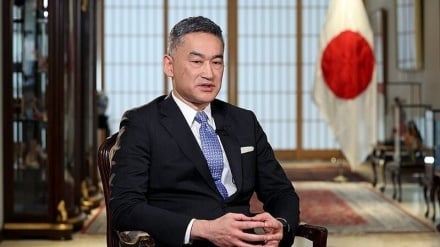Japan-Korean relations slip to a new low
Tokyo on Friday, August 2 revoked South Korea’s preferential status as a trade partner for the purchase of dual-use materials vital to Korean industry, driving bilateral relations to their lowest ebb in recent memory and raising questions over the grounds for the Japanese action.
Stay with us for an article which appeared on Asia Times website, titled, “Japan-Korean relations slip to a new low”, by investigator journalist and writer, Jake Adelstein.
Seoul-Tokyo relations have not been rosy since Prime Minister Shinzo Abe took power in 2012 – partly due to his support from Japan’s far-right, which itself utilizes anti-Korean sentiment. Since leftist Moon Jae-in took power in Seoul in 2017, the relationship has worsened further.
Last October, South Korea’s Supreme Court ruled that Japan’s steelmakers had to pay compensation to South Koreans who were victims of wartime forced labor.
Abe’s Liberal Democratic Party (LDP) views the issue of compensation as having been settled under a 1965 bilateral agreement and compensation package.
South Korea is the first country ever to lose its position on Japan’s “white list” of preferred export destinations, gaining the status in 2004. Japanese companies will now need to obtain case-by-case approval from Japan’s trade ministry before exporting to Korea.
According to the Asahi Shimbun, that could result in months of processing paperwork for every export. Friday’s decision follows a July 4 move that required Korean firms to gain individual licenses to import crucial materials used to manufacture semiconductors and display panels for smartphones and TVs.
Seoul has criticized Tokyo’s action, calling them retaliation for its court rulings. Tokyo insists the measure addressed security concerns, claiming there were “improper incidents” surrounding exports to South Korea. It has not given details, but the claims are probably not completely without merit. Some information has leaked out.
Former government official, economist and author Noriya Usami claims on his blog that China is procuring materials from South Korea to build their own high-tech industries. He points out that South Korea has a poor record of tracking materials exported to that country and notes that there are materials China seeks which Japan limits exports of.
On a TV program on July 4, Kōichi Hagiuda, a Deputy Chief Cabinet member, argued vaguely that restrictions on exports to South Korea were necessary because in the past, shipments were unaccounted for.
Then, on July 5, on conservative Fuji Television, an unnamed ruling party member was reported to have said that large amounts of fluorine products shipped to Korea, which could be used to make chemical weapons, had not been properly accounted for by Seoul.
However, Abe has made guarded remarks indicating that the trade measures are responses to Seoul’s refusal to interfere with the court decisions.
While seemingly agitated in a debate broadcast on Fuji Television on July 7, Abe said: “Concerning the conscripted labor problem. If [Korea] is a country that can’t uphold an agreement, then, of course, we can’t be sure they are conducting proper management of trade [from a national security perspective].”
In Japan, there’s capital to be gained in exploiting prejudice, conspiracy theories and “Yamato Supremacism” during elections.
Even conservative paper the Nikkei, in a front page article, conceded that the timing of the first export restrictions appeared political. On July 26 it wrote: “The Ministry of Economy, Trade and Industry announced the restrictions three days before the Upper House elections, on July 1 … Abe avoided the topic during his stump speeches during the campaign, but many feel this put wind in the sails of [his] Liberal Democratic Party.”
A surprising number of people in Japan don’t seem to know much about atrocities committed by Japan during the Pacific War.
The group of right-wing nationalists and historical revisionists that form Nippon Kaigi have sought to rewrite Japanese history and textbooks for decades. It is they who rescued Abe from political limbo after his unsuccessful first time as prime minister. The majority of his cabinet ministers belong to the group.
In recent years, his cabinet has virtually ensured that no textbook mentioning Japan’s annexation of Korea or its colonial misdeeds can be approved.
But not all Japanese despise Koreans. Amid the current dire relations between Seoul and Tokyo, a moving letter from an 89-year-old Japanese Buddhist priest was published in the leftist Asahi Shimbun on March 19.
In the letter, he recounts the colonial-era slurs used against Koreans and remembers watching a Korean mother holding her crying child after she had been bullied by Japanese teenagers. “Why do you make fun of us? We have noses, we have mouths, where are we different?” the woman asked him at the time.
He then linked that recall to the present.
“I can’t help but see traces of that mistaken feeling of superiority we had over the Koreans at that time,” he wrote. “Is it because Korea isn’t the USA that we feel like building conflict, fanning anti-Korean fervor and using it for political ends?”
Adding a note of empathy, he continued: “The people who discriminated against others may forget it, but those who were subject to that discrimination never forget. I wish that Shinzo Abe, the government and the LDP would keep this in mind, and work to deepen friendship between Japan and our neighbor Korea.”
SS/SS


